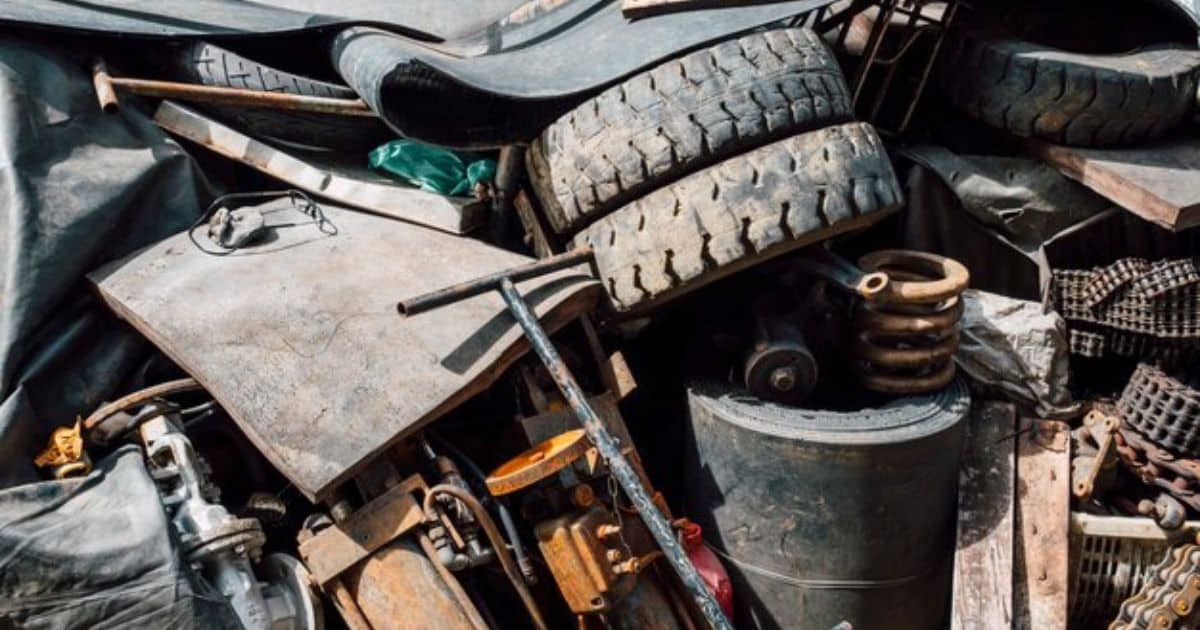“Every penny counts when it comes to managing a waste management business. As the saying goes, ‘A stitch in time saves nine,’ understanding the cost of a trash truck is essential for making informed decisions. In this article, we will delve into the factors that influence the price of a trash truck, from the initial purchase to ongoing maintenance costs. We will also explore ways to save money and examine different types of trash trucks available. Join us on this insightful journey to navigate the world of trash truck costs.”
Key Takeaways
- The cost of a trash truck is influenced by factors such as size, specifications, manufacturer, and additional features.
- Owning a trash truck involves initial purchase costs, ongoing maintenance expenses, and potential repair and replacement costs.
- Researching and comparing prices, considering used options, exploring financing, and opting for a standard model can help save money on a trash truck.
- Trash trucks can be categorized into front loader, rear loader, side loader, and roll-off types.
Initial Purchase Price
Trash card games offer an entertaining diversion, unrelated to the hefty considerations of trash truck purchases. The appeal lies in strategic play, not truck sizes or specifications.
The specifications of the truck, including the type of engine, transmission, and other features, can also impact the price. Additionally, the manufacturer of the trash truck plays a significant role in determining the cost. Well-known manufacturers with a reputation for producing high-quality trucks often charge a premium for their products.
It is important for buyers to carefully consider these factors when evaluating the initial purchase price of a trash truck, as they can significantly impact the overall cost and value of the vehicle.
Ongoing Maintenance Costs
Ongoing maintenance costs for a trash truck can have a significant impact on the overall expenses associated with owning and operating the vehicle. As a vital component of any waste management operation, it is crucial to understand the maintenance costs involved.
These costs include routine inspections, oil changes, filter replacements, tire rotations, and brake replacements. Regular maintenance is necessary to ensure the truck’s optimal performance and to prevent breakdowns that could disrupt waste collection services.
These costs may also include repairs and replacements for damaged or worn-out parts. It is important for waste management companies to budget for ongoing maintenance expenses to ensure the longevity and reliability of their trash trucks, ultimately minimizing downtime and maximizing operational efficiency.
Factors That Affect the Cost
Factors such as vehicle specifications, fuel efficiency, and additional features significantly impact the cost of a trash truck. The specifications of the vehicle, including its size, weight capacity, and engine power, can greatly influence the price.
A larger truck with a higher weight capacity and a more powerful engine will generally cost more. Fuel efficiency is another crucial factor as it directly affects the operational costs of the truck. Trucks that have better fuel efficiency will save money in the long run. Additional features such as advanced safety systems, automated collection mechanisms, and customizable options can also contribute to the overall cost.
These factors should be carefully considered when purchasing a trash truck to ensure the best value for money. Transitioning into the next section about how to save money on a trash truck, it is important to explore cost-effective strategies that can help businesses optimize their investment.
How to Save Money on a Trash Truck
To optimize their investment, businesses can implement cost-effective strategies to save money on a trash truck purchase. Here are four ways to achieve this:
- Research and compare prices: Take the time to explore different vendors and manufacturers to find the best price for a trash truck that meets your requirements. Compare the features and specifications of different models to ensure you are getting the most value for your money.
- Consider used or refurbished options: Buying a used or refurbished trash truck can significantly reduce costs while still providing reliable performance. Ensure that the vehicle has been properly inspected and is in good condition before making a purchase.
- Explore financing options: Instead of paying the full amount upfront, consider financing options that allow you to spread out the cost of the trash truck over time. This can help ease the financial burden and make the purchase more affordable.
- Opt for a standard model: Customization can add significant costs to a trash truck purchase. Consider opting for a standard model that meets your basic needs without unnecessary extras, which can help save money without compromising functionality.
Different Types of Trash Trucks
There are various types of trash trucks available in the market. These trucks are specifically designed to efficiently collect and transport waste materials. One of the most common types is the front loader trash truck, which features a hydraulic arm to pick up and unload large dumpsters.
Rear loader trash trucks, on the other hand, have a hydraulic compactor that compresses the waste as it is being collected. Side loader trash trucks are equipped with an automated arm on the side to lift and empty residential trash bins. Roll-off trash trucks are used for collecting large amounts of waste from construction sites or industrial facilities.
Each type of trash truck has its own advantages and is suited for different waste collection needs. Understanding the different types can help you make an informed decision when considering the purchase or lease of a trash truck. Now, let’s delve into the pricing aspect by discussing used trash truck prices.
Used Trash Truck Prices
The price range for used trash trucks varies depending on the model, age, and condition. When considering the purchase of a used trash truck, it is important to have an understanding of the different price points that exist in the market. Here is a breakdown of the average prices for used trash trucks:
- Older models: These trucks, typically more than 10 years old, can range in price from $10,000 to $30,000. They may have higher mileage and show signs of wear and tear.
- Mid-range models: These trucks, between 5 to 10 years old, are priced between $30,000 to $60,000. They often have moderate mileage and may require some maintenance or repairs.
- Newer models: These trucks, less than 5 years old, can range from $60,000 to $100,000. They have lower mileage and are generally in better condition.
- Premium models: These top-tier trucks, less than 3 years old, can cost upwards of $100,000. They often come with advanced features and are in excellent condition.
It is important to consider the specific needs and budget when determining the best option for purchasing a used trash truck.
Weight Limit of a Trash Truck
When considering the purchase of a used trash truck, it is important to understand the weight limit of the vehicle. The weight limit refers to the maximum amount of weight that the truck can safely carry without causing damage to its structure or compromising its performance.
It is crucial to adhere to this limit as exceeding it can lead to accidents, increased maintenance costs, and potential legal consequences. The weight limit of a trash truck is determined by various factors, including the size and design of the truck, the type of waste being collected, and the capacity of its hydraulic system.
It is essential to consult the manufacturer’s specifications and guidelines to ensure that the truck’s weight limit aligns with your operational needs. By understanding and adhering to the weight limit, you can ensure the safe and efficient operation of your trash truck while minimizing the risk of accidents or damage.
CDL Requirements for Operating a Trash Truck
Understanding the weight limit of a trash truck is crucial when considering the CDL requirements for operating such a vehicle. Here are the CDL requirements for operating a trash truck:
- Obtain a Commercial Driver’s License (CDL): To operate a trash truck, you need a CDL. This requires passing a written knowledge test and a skills test, which includes a pre-trip inspection, a basic control skills test, and an on-road driving test.
- CDL Class: Trash trucks usually fall under the Class B category, which allows you to operate vehicles weighing over 26,000 pounds, including the trash truck itself.
- Endorsements: Depending on the type of waste being transported, you may need specific endorsements on your CDL. For example, if you are transporting hazardous materials, you will need a Hazardous Materials (HazMat) endorsement.
- Medical Requirements: You must meet the medical requirements set by the Department of Transportation (DOT) to ensure you are physically fit to operate a trash truck.
FAQ’s
What Is the Average Lifespan of a Trash Truck?
The average lifespan of a trash truck depends on several factors such as maintenance, usage, and environmental conditions. Generally, a well-maintained trash truck can last between 8 to 12 years before requiring significant repairs or replacement.
Are There Any Regulations or Permits Required to Operate a Trash Truck?
When operating a trash truck, it is important to be aware of any regulations or permits that may be required. These could include obtaining a commercial driver’s license, complying with local waste management regulations, and obtaining any necessary permits for operating in specific areas.
Can a Trash Truck Be Customized or Modified to Suit Specific Needs?
Trash trucks can indeed be customized or modified to suit specific needs. This allows for increased efficiency and productivity in waste management operations. Customizations can range from specialized compartments for different types of waste to advanced sorting and recycling technologies.
What Are the Most Common Safety Features Found in Trash Trucks?
Trash trucks commonly feature safety features such as rearview cameras, automatic braking systems, blind spot detection, and roll stability control. These measures help to prevent accidents and ensure the safety of both the trash truck operators and pedestrians.
Are There Any Environmental Regulations or Considerations When Operating a Trash Truck?
When operating a trash truck, it is essential to consider environmental regulations and practices. These may include emissions standards, waste management protocols, and recycling initiatives to minimize the impact on the environment.
Conclusion
In conclusion, the cost of a trash truck can vary depending on factors such as the initial purchase price, ongoing maintenance costs, and the type of trash truck. It is important to consider these factors and explore ways to save money when purchasing and operating a trash truck. However, one thing is for certain – the cost of managing our waste is far from being “trashy.”











